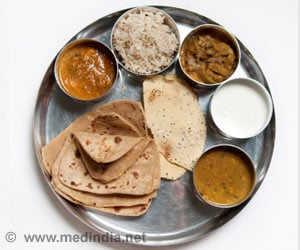A Short-Message-Service (SMS) hotline was launched in New Delhi, India to provide round-the-clock free tuberculosis (TB) support service to TB patients.
A Short-Message-Service (SMS) hotline was launched in New Delhi , India to provide round-the-clock free tuberculosis (TB) support service to TB patients. This SMS helpline is being managed by ex-TB patients.
Earlier on World Health Day (7 April 2009), a unique partnership was forged in a community of India 's capital to improve TB responses. The residents of south Delhi and healthcare providers in this area participated in an open dialogue to identify key challenges that people faced in accessing the health services, and came up with effective solutions that can potentially improve the quality of care for all residents. This new Community Care Club in the Lado Sarai area of South Delhi ( India ), has been working to improve the health of people in the diverse district by bringing together consumers and care-providers in a dynamic 'partnership in health'. Led by local former TB patients and people living with HIV (PLHIV), this is an initiative to empower not only themselves, but also to empower and mobilize a broad base of the community including the private and public sectors.The SMS helpline was launched in another follow-up meeting of Community Care Club on 26 May 2009. Breaking new ground, from the bottom up, people living with the diseases and those most affected had reached out to raise the standards of care, driving forward on securing their Rights and fulfilling their Responsibilities, as outlined in the Patients' Charter for Tuberculosis Care.
The World Care Council, an international NGO of activists living with HIV and/or TB, is beginning to roll out a series of projects in India . As TB is the greatest killer of PLHIV, and almost half a million Indians die annually from this curable disease, the World Care Council is striving to build a mechanism for empowerment for all those either with TB or most at risk, applying many lessons learned from the last 25 year of HIV/AIDS activism and other social movements.
Over the last few months, the World Care Council's Indian branch has organized patient support groups, trained a team of TB activists to get local Clubs going, and conducted Outreach for Input events to build stake-holding on the ground in two pilot projects in New Delhi and Goa , with the support of the United States Agency for International Development (USAID). The first seeds for growing social mobilization have been planted, nurtured and are ready to blossom. Now, the outreach is underway to forge dynamic partnerships with key elements of civil society and to strengthen existing collaborations with the Revised National TB Control Programme (RNTCP), National AIDS Control Organization (NACO) and State Governments.
On 26 May 2009, a meeting was held in the LRS Institute of Tuberculosis and Respiratory Diseases, New Delhi , and on 27 May 2009, another meeting was held in Lado Serai Community Hall in South Delhi .
These series of meetings are particularly important because for the first time in the history of India 's TB control efforts, the TB patients themselves are taking centre-stage in driving mobilization and advocacy for scaling up TB care to improve services and prevention for themselves, their peers and their neighbours.
Advertisement
However, implementing the Charter on the frontlines of TB care, raising awareness about rights and responsibilities, and using it as an empowering tool for people with TB and their community in order to improve the quality of care services, is certainly a daunting task.
Advertisement
Contributed by: Bobby Ramakant
Source-Medindia
THK/L











